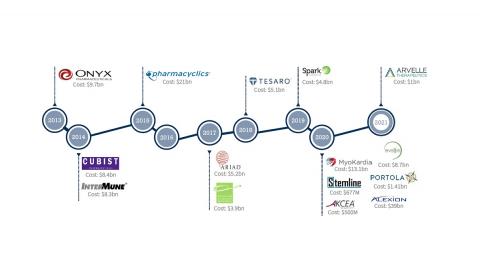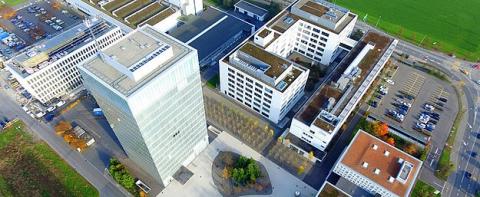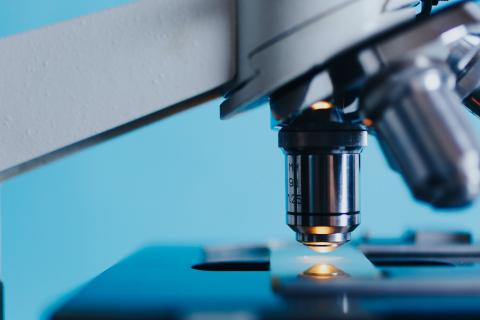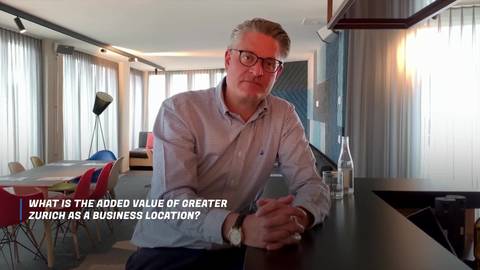These days, news of biotechnological innovations from Bellinzona reaches across the globe, and this is confirming what industry experts already knew: Ticino has positioned itself successfully on the global biotech map. In the field of immunology, for instance, research from the Institute for Research in Biomedicine (IRB) in Bellinzona cannot be overlooked. Established in the year 2000, the IRB has been affiliated with the Università della Svizzera italiana (University of Italian Switzerland; USI) since 2009 and collaborates closely with the Swiss Federal Institute of Technology (ETH) in Zurich. The research group leaders are active professors at Swiss and Italian universities.
For Alcide Barberis, a biotechnology expert and Incubator Director at the USI Startup Centre, this network is one reason for the location’s advancement. “Ticino forms a bridge between life science centers in Italy and Switzerland,” says Barberis. He adds that the pharmaceutical and biotech tradition in Ticino is the basis for this, with companies such as Helsinn Healthcare, Cerbios-Pharma or IBSA Institut Biochimique and, of course, the work of the IRB.
Spearheading coronavirus research
The IRB has been at the forefront of coronavirus research since the start of the pandemic and has seen success collaborating with local hospitals and through international alliances. Five groups at the institute are currently researching the disease COVID-19, which is caused by the infection. The Director of the IRB, Davide Robbiani, says: “For example, we have engineered a bispecific antibody that neutralizes the original coronavirus in addition to the new variants.” This molecule was successful in preclinical studies; the IRB is now planning the next steps.
Moreover, the plans for a drug to treat COVID-19 from the IRB spin-off Humabs Biomed, which uses technology developed at the IRB to do so, are known around the world. Together with the British pharmaceutical company GlaxoSmithKline, applications are now being made for emergency authorization for the drug in the USA and other countries. Humabs Biomed has been part of the Californian biotech company Vir Biotechnology since 2017, but it is headquartered in Bellinzona and has even invested in new laboratories there.
IRB trains biotech specialists
Connections in the Greater Zurich Area are becoming increasingly close. A new medical degree program started last year: the bachelor’s degree is primarily completed at the ETH, while the master’s degree is at the USI. Robbiani explains: “Thus, students arrive in Ticino with a strong background in basic sciences. For those with an interest in biomedical research, we offer the option of an experimental master’s thesis.” Alcide Barberis emphasizes that these specialists are of paramount importance for the location. A third of the start-ups he supports derive from the field of life sciences.
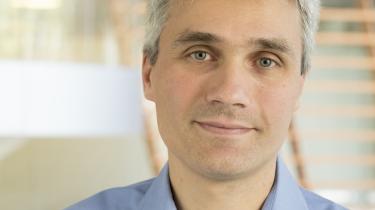
New biotechnology center will be ready in summer
Cutting-edge infrastructure is an additional ace up the region’s sleeve. Barberis already moved to a new campus in Lugano together with the USI Startup Centre in 2020. From this summer onwards, a new building with the latest scientific facilities will be ready for the IRB in Bellinzona as well. Furthermore, the IRB provides additional evidence that the best way to drive forward biotech is within a network. The new center will also be home to the Institute of Oncology Research (IOR) and the laboratories of the Ticino cantonal hospital group, Ente Ospedaliero Cantonale (EOC). Davide Robbiani adds: “This will strengthen existing collaborations and create new synergies. All together it will be close to 250 people, mostly scientists. With this we are reaching an important critical mass.”
By Yvonne von Hunnius
Featured Video
Industry expert Samuel Bussmann, Co-Founder of BioXpansion and Partner at MME Legal Tax Compliance, explains what U.S. biotech companies need to keep in mind in order to successfully expand to Europe and why the Greater Zurich Area is an excellent choice of location.
Related news
Contact us
Can we put you in touch with a peer company or research institute? Do you need any information regarding your strategic expansion to Switzerland's technology and business center?
info@greaterzuricharea.com

